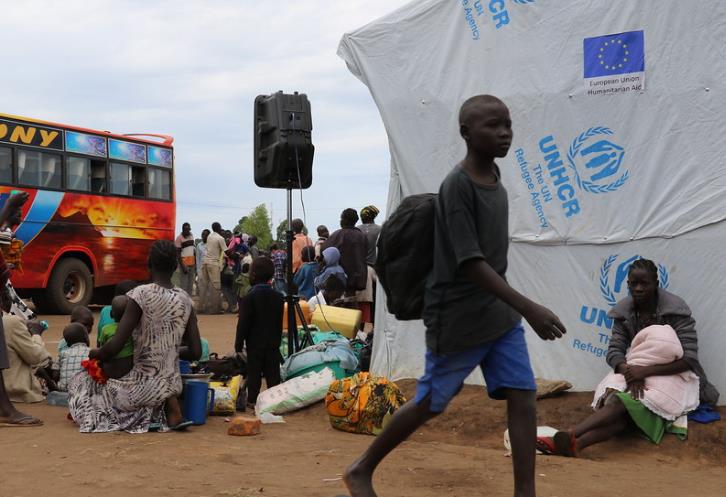UNHCR Egypt, the UN Refugee Agency, has issued an update on its emergency response to the Sudanese refugees who have fled the conflict in their country. The update covers the period from 1 February to 6 March 2024, and highlights the achievements and challenges of the humanitarian operation.
According to the update, the number of Sudanese refugees registered with UNHCR Egypt has reached 212,000 as of 6 March 2024, an increase of 12,000 since the previous update. The majority of the refugees are from Darfur, South Kordofan, and Blue Nile regions, where violence and insecurity have escalated since April 2023.

The refugees face multiple challenges and risks, such as limited access to basic services, legal documentation, livelihood opportunities, and education. They also suffer from trauma, discrimination, harassment, and exploitation. Many of them live in overcrowded and substandard conditions, and are vulnerable to COVID-19 and other health issues.
The Response and the Achievements of UNHCR Egypt
UNHCR Egypt, in coordination with its partners and the Egyptian government, has been providing aid and protection to the Sudanese refugees, in line with its mandate and the Global Compact on Refugees. The update outlines the main activities and achievements of UNHCR Egypt in the following sectors:
- Protection: UNHCR Egypt has been conducting registration, verification, and documentation of the refugees, as well as providing legal assistance, counseling, and referrals. UNHCR Egypt has also been supporting the protection of children, women, and persons with specific needs, through case management, psychosocial support, and community-based interventions. UNHCR Egypt has also been advocating for the inclusion of refugees in the national COVID-19 vaccination plan, and for the respect of the principle of non-refoulement.
- Health: UNHCR Egypt has been ensuring access to primary and secondary health care for the refugees, as well as covering the costs of COVID-19 testing and treatment. UNHCR Egypt has also been providing health education, awareness raising, and infection prevention and control measures. UNHCR Egypt has also been distributing hygiene kits, masks, and sanitizers to the refugees and the host communities.
- Education: UNHCR Egypt has been facilitating access to formal and non-formal education for the refugee children and youth, as well as providing scholarships, online learning, and remedial classes. UNHCR Egypt has also been supporting the capacity building of teachers and school staff, and the provision of educational materials and equipment.
- Livelihoods: UNHCR Egypt has been promoting the economic inclusion and empowerment of the refugees, through vocational training, microfinance, entrepreneurship, and job placement. UNHCR Egypt has also been supporting the development of community-based initiatives, such as cooperatives, associations, and self-help groups.
- Shelter and NFIs: UNHCR Egypt has been providing cash assistance, rental subsidies, and shelter rehabilitation to the most vulnerable refugees, as well as distributing non-food items, such as blankets, mattresses, and kitchen sets.
The Challenges and the Gaps of the Humanitarian Operation
The update also acknowledges the challenges and the gaps that UNHCR Egypt and its partners face in delivering the humanitarian assistance and protection to the Sudanese refugees. These include:
- The limited funding and resources, which affect the quality and coverage of the services and the assistance.
- The complex and dynamic security situation in Sudan, which hampers the access and the delivery of humanitarian aid, and increases the protection risks and the humanitarian needs of the affected population.
- The COVID-19 pandemic, which poses additional health and socio-economic challenges for the refugees and the host communities, and limits the mobility and the access of the humanitarian workers.
- The lack of durable solutions, such as voluntary repatriation, resettlement, or local integration, for the refugees, who face protracted displacement and uncertainty.
The update appeals for more support and solidarity from the international community, the donors, the civil society, and the private sector, to address the humanitarian needs and the protection gaps of the Sudanese refugees in Egypt, and to uphold the principles of responsibility sharing and partnership.
